
Get Price Quote
Calcium Silicate Blocus & Pipe Coverings, alumina bricks
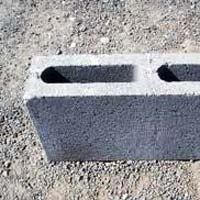
Concrete Hollow Blocks
Get Price Quote
By using a new innovative technology, we bring forth an exquisite collection of Concrete Hollow Blocks. These Concrete Hollow Blocks are available in sectors such as construction. These Concrete Hollow Blocks are a better substitute to work faster to build a structure and also provide long-lasting value. These Concrete Hollow Blocks give a different look and make an eco-friendly atmosphere in the building. High dimensional accuracy and consistent finish make these Concrete Hollow Blocks an ideal building material for both load bearing constructions and partition walls. These Concrete Hollow Blocks are often used as substitutes for conventional bricks in the construction of buildings, as these cement hollow blocks are lighter and more economical. These Concrete Hollow Blocks are manufactured in confirmation to the set industrial norms. Our Concrete Hollow Blocks include Cement Hollow Blocks and Concrete Hollow Blocks. Highlights : Lightweight Long-life High compressive strength Perfect finish
Best Deals from Ceramic Block

Coir Pith Blocks
Get Price Quote
Coir Fibre is extracted from the fibrous outer cover of the fruit of the Coconut palm, with or without retting. Coir Fibre is graded based on its nature of extraction, colour, presence of long and short fibres, impurities etc. Details : History - Ropes and cordage have been made from coconut fiber since ancient times. Indian navigators who sailed the seas to Malaya, Java, China, and the Gulf of Arabia centuries ago used coir for their ship ropes. Arab writers of the 11th century AD referred to the extensive use of coir for ship ropes. A coir industry in the UK was recorded before the second half of the 19th century. During 1840, Captain Widely, in co-operation with Captain Logan and Mr. Thomas Treloar, founded the known carpet firms of Treloar and Sons in Ludgate Hill, England, for the manufacture of coir into various fabrics suitable for floor coverings. Structure- Coir fibers are found between the hard, internal shell and the outer coat of a coconut. The individual fiber cells are narrow and hollow, with thick walls made of cellulose. They are pale when immature, but later become hardened and yellowed as a layer of lining is deposited on their walls. Each cell is about 1 mm (0.04 in) long and 10 to 20 µm (0.0004 to 0.0008 in) in diameter. Fibers are typically 10 to 30 centimeter’s (4 to 12 in) long. The two varieties of coir are brown and white. Brown coir harvested from fully ripened coconuts is thick, strong and has high abrasion resistance. It is typically used in mats, brushes and sacking. Mature brown coir fibers contain more lining and less cellulose than fibers such as flax and cotton.so are stronger but less flexible. White coir fibers harvested from coconuts before they are ripe are white or light brown in color and are smoother and finer, but also weaker. They are generally spun to make yarn used in mats or rope. The coir fiber is relatively waterproof, and is one of the few natural fibers resistant to damage by saltwater. Fresh water is used to process brown coir, while seawater and fresh water are both used in the production of white coir. It must not be confused with coir pith, or formerly coco peat, which is the powdery material resulting from the processing of the coir fiber. Coir fiber is locally named 'coprah' in some countries, adding to the confusion. Processing - Green coconuts, harvested after about six to 12 months on the palm, contain pliable white fibres. Brown fibre is obtained by harvesting fully mature coconuts when the nutritious layer surrounding the seed is ready to be processed into coprah and desiccated coconut. The fibrous layer of the fruit is then separated from the hard shell (manually) by driving the fruit down onto a spike to split it (DE husking). A well-seasoned husker can manually separate 2,000 coconuts per day. Machines are now available which crush the whole fruit to give the loose fibers. These machines can process up to 2,000 coconuts per hour. Brown fiber - The fibrous husks are soaked in pits or in nets in a slow-moving body of water to swell and soften the fibers. The long bristle fibers are separated from the shorter mattress fibers underneath the skin of the nut, a process known as wet-milling. The mattress fibers are sifted to remove dirt and other rubbish, dried in the sun and packed into bales. Some mattress fiber is allowed to retain more moisture so it retains its elasticity for twisted fiber production. The coir fiber is elastic enough to twist without breaking and it holds a curl as though permanently waved. Twisting is done by simply making a rope of the hank of fiber and twisting it using a machine or by hand. The longer bristle fiber is washed in clean water and then dried before being tied into bundles or hanks. It may then be cleaned and 'hackled' by steel combs to straighten the fibers and remove any shorter fiber pieces. Coir bristle fiber can also be bleached and dyed to obtain hanks of different color’s. White fiber - The immature husks are suspended in a river or water-filled pit for up to ten months. During this time, micro-organisms break down the plant tissues surrounding the fibers to loosen them — a process known as retting. Segments of the husk are then beaten by hand to separate out the long fibers which are subsequently dried and cleaned. Cleaned fiber is ready for spinning into yarn using a simple one-handed system or a spinning wheel. Researchers at CSIR's National Institute for Interdisciplinary Science and Technology in Thiruvananthapuram have developed a biological process for the extraction of coir fiber from coconut husk without polluting the environment. The technology uses enzymes to separate the fibers by converting and solubilizing plant compounds to curb the pollution of waters caused by retting of husks. Buffering - Because coir pith is high in sodium and potassium, it is treated before use as a growth medium for plants or fungi by soaking in a calcium buffering solution; most coir sold for growing purposes is said to be pre-treated. Once any remaining salts have been leached out of the coir pith, it and the coco chips become suitable substrates for cultivating fungi. Coir is naturally rich in potassium, which can lead to magnesium and calcium deficiencies in soilless horticultural media. Coir fiber is rarely used as a potting material, except for orchids, and does not need buffering, as it has a very low caution-exchange capacity (CEC) capacity, hence not retaining salts. Coir does provide a suitable substrate for horticultural use as a soilless potting medium. The material's high lignin content is longer-lasting, holds more water, and does not shrink off the sides of the pot when dry allowing for easier rewetting. This light media has advantages and disadvantages that can be corrected with the addition of the proper amendment such as coarse sand for weight in interior plants like Dracaena. Nutritive amendments should also be considered. Calcium and magnesium will be lacking in coir potting mixes, so a naturally good source of these nutrients is dolomitic lime which contains both. pH is of utmost importance as coir pith tends to have a high pH after some months of use, resulting in plant stunting and multiple deficiencies. Coir has as well the disadvantage of being extremely sensitive to the Leucocoprinus greenhouse fungus. The addition of beneficial microbes to the coir media have been successful in tropical greenhouse conditions and interior spaces as well. However, it is important to note that the microbes will engage in growth and reproduction under moist atmospheres producing fruiting bodies (mushrooms). Bristle coir - Bristle coir is the longest variety of coir fiber. It is manufactured from retted coconut husks through a process called defibering. The coir fiber thus extracted is then combed using steel combs to make the fiber clean and to remove short fibers. Bristle coir fiber is used as bristles in brushes for domestic and industrial applications. Uses[edit] Cordage, packaging, bedding, flooring, and othersMaking coir rope in Kerala, IndiaRed coir is used in floor mats and doormats, brushes, mattresses, floor tiles and sacking. A small amount is also made into twine. Pads of curled brown coir fibre, made by needle-felting (a machine technique that mats the fibres together), are shaped and cut to fill mattresses and for use in erosion control on river banks and hillsides. A major proportion of brown coir pads are sprayed with rubber latex which bonds the fibres together (rubberised coir) to be used as upholstery padding for the automobile industry in Europe. The material is also used for insulation and packaging. The major use of white coir is in rope manufacture. Mats of woven coir fibre are made from the finer grades of bristle and white fibre using hand or mechanical looms. White coir also is used to make fishing nets due to its strong resistance to saltwater. Agricultural and horticultural uses[edit] - In agriculture and horticulture, coir is a substitute for sphagnum (peat moss) and peat because it is widely available and environmentally friendly. Many sources of coir however are heavily contaminated with pathogenic fungi, and the choice of the source is important. Coir is also useful to deter snails from delicate plantings, and as a growing medium in intensive glasshouse (greenhouse) horticulture. Coconut coir from Mexico has been found to contain large numbers of colonies of the beneficial fungus Aspergillus terreus, which acts as a biological control against plant pathogenic fungi. Coir is also used as a substrate to grow mushrooms. The coir is usually mixed with vermiculite and pasteurised with boiling water. After the coir/vermiculite mix has cooled to room temperature, it is placed in a larger container, usually a plastic box. Previously prepared spawn jars are then added, spawn is usually grown in jars using substrates such as rye grains or wild bird seed. This spawn is the mushrooms mycelium and will colonize the coir/vermiculite mix eventually fruiting mushrooms. Coir is an allergen, as well as the latex and other materials used frequently in the treatment of coir.[11] Coir can be used as a terrarium substrate for reptiles or arachnids.[12][13] Coir fibre pith or coir dust can hold large quantities of water, just like a sponge.[14] It is used as a replacement for traditional peat in soil mixtures, or, as a soil-less substrate for plant cultivation.[14] It has been called "coco peat" because it is to fresh coco fibre somewhat like what peat is to peat moss, although it is not true peat. Coir waste from coir fibre industries is washed, heat-treated, screened and graded before being processed into coco peat products of various granularity and denseness, which are then used for horticultural and agricultural applications and as industrial absorbent. Usually shipped in the form of compressed bales, briquettes, slabs or discs, the end user usually expands and aerates the compressed coco peat by the addition of water. A single kilogramme of dry coco peat will expand to 15 litres of moist coco peat. Coco peat is used as a soil conditioner. Due to low levels of nutrients in its composition, coco peat is usually not the sole component in the medium used to grow plants. When plants are grown exclusively in coco peat, it is important to add nutrients according to the specific plants' needs. Coco peat from Philippines, Sri Lanka and India contains several macro- and micro-plant nutrients, including substantial quantities of potassium. This extra potassium can interfere with magnesium availability. Adding extra magnesium through the addition of magnesium sulphates can correct this issue. Some coco peat is not fully decomposed when it arrives and will use up available nitrogen as it does so (known as drawdown), competing with the plant if there is not enough. This is called nitrogen robbery; it can cause nitrogen deficiency in the plants. Poorly sourced coco fibre can have excess salts in it and needs washing (check electrical conductivity of run-off water, flush if high). It holds water well and holds around 1000 times more air than soil. Adding slow release fertilizers or organic fertilizers are highly advised when growing with coco fibre. Common uses of coco fibre include: As a substitute for peat, because it is free of bacteria and most fungal spores, and is sustainably produced without the environmental damage caused by peat mining. Mixed with sand, compost and fertilizer to make good quality potting soil. Coco peat generally has an acidity in the range of pH - 5.5 to 6.5, which is slightly too acidic for some plants, but many popular plants can tolerate this pH range. As substrate for growing mushrooms, which thrive on the cellulose. Coco peat has high cellulose and lignin content. Coco fibre can be re-used up to three times with little loss of yield. Coco fibre from diseased plants should not be re-used. Others[edit] Being a good absorbent, dry coco peat can be used as an oil absorbent on slippery floors. Coco peat is also used as a bedding in animal farms and pet houses to absorb animal waste so the farm is kept clean and dry. Coco fibre is hydrophilic unlike sphagnum moss and can quickly reabsorb water even when completely dry. Coco peat is porous and cannot be overwatered easily. Biosecurity risks[edit] Coco fibre can harbour organisms that pose a threat to the biosecurity of countries into which it is imported. Coco peat has been imported into New Zealand since about 1989 with a marked increase since 2004. By 2009 a total of 25 new weed species have been found in imported coco peat. The regulations relating to importing coco peat into New Zealand have been amended to improve the biosecurity measures.[15] Trichoderma is a naturally occurring fungus in coco peat; it works in symbiosis with plant roots to protect them from pathogenic fungi such as pythium. It is not present in sterilised coco peat. Trichoderma is also destroyed by hydrogen peroxide.[citation needed Export information Coco peat blocks are produced with 5 kg weight and suitable for users who need coco peat in bulk quantities. High compression ratio, as high as 5:1 makes the transport costs low and affordable. These can be used for any hydroponic or horticulture application after preparation for re use. Due to high compression ratio preliminary tools may be required for loosening. It is also suitable for applications in preparing potting mix, terrariums, lawns, erosion control, and many other industrial applications. Briquettes are specially produced for retail markets for the users of coco peat in gardening, cropping and all horticulture and hydroponic as potting mixture or soil conditioner. The highest compression ratio 8:1 gives the maximum cost benefit to the retailer and the customer. The briquettes are also useful for bulk customers who need in bulk quantities or intend for reuse. For the retail market, wrapped briquettes with customer specified labels are available. With our state of the art well organized packing line including two shrink machines and skill labour force, enable us to pack our products according to the buyer’s exact requirement with a feasible price. That’s the reason why we have become the leading coir based retail product manufacture & supplier for world largest supermarket chains. That’s the reason why we have become the leading coir based retail product manufacture & supplier for world largest supermarket chains. Coir pith is collected during the process of coir fibre extraction from coconut husk. About 5Kg of pith is obtained for every Kg of fibre extracted. Till recent year, it was considered as waste and research has found many applications of coir pith. It is eco-friendly and bio-degradable. Coir is the outside layer of husk that surrounds the shell of the coconut. It consists mainly of fibers, which have traditionally been used to manufacture rope, carpets, doormats, upholstery stuffing, brushes etc. Between these fibers’ is the corky substance called Coir pith or coir dust, which has recently been widely recognized as this superior and perfect organic growing medium for fruits such as strawberry, vegetables such as pepper, cucumber, tomatoes, and flowers such as gerbera, gladiol, lily, anthurium and rose. Coir pith is 100% organic and natural growing media. It is a multipurpose growing medium. The horticulture industry often calls this substrate coco-peat (or coco peat) or coir-peat. Coir pith is used as combustible fuel in boilers in some countries as the colorific of coir pith is high. Also it is used as an organic fertilizer in horticulture and floriculture as a soil container and substitute for soil. Its water retaining capacity and compressibility besides light weight are the main characteristics which make it widely applicable. Coir pith not only revitalizes your plants, it induces uniformity in growth by enhancing water retention and microbial activity. Coir pith contains high quality of nutrients that keep the soil healthy in a natural way. It acts as a top dressing that helps maintain moisture and reconditions the soil. Uses of Coir Pith Blocks As a potting mix - Coir pith block can be used as potting medium. It can be mixed with required fertilizers and nutrients according to the type of plant to be grown. For mushroom growers - Coir pith block can be used as potting medium. It can be mixed with required fertilizers and nutrients according to the type of plant to be grown. As a soil supplement & Prevents regular watering - Coir pith block can be used as potting medium. It can be mixed with required fertilizers and nutrients according to the type of plant to be grown. For generating seeds - Coir pith block can be used as potting medium. It can be mixed with required fertilizers and nutrients according to the type of plant to be grown. For tissue cultured plan - Coir pith block can be used as potting medium. It can be mixed with required fertilizers and nutrients according to the type of plant to be grown. Friendly to the Environment - Coir pith block can be used as potting medium. It can be mixed with required fertilizers and nutrients according to the type of plant to be grown. Reusability - Coir pith block can be used as potting medium. It can be mixed with required fertilizers and nutrients according to the type of plant to be grown. Hangout world :are leading companies located in south India, which deals in exporting Coir products from India. Our services include exporting Coir fibers, Coco peats and Coir ropes to China and European Countries from India. We focus on continuing to offer dedicated services to our customers with traditional integrity and trustworthiness. We strive to be the most innovative in our field, constantly trying to find ways to innovate and improve our products to meet the changing demands of our customers. Coming from the coconut triangle of India, the company has always been a part of eco-friendly product exporting in the country. To all of our current clients, thank you for your business. If you have yet to work with us, we look forward to showing you the distinction that Dhanu Coir Exports offers to our clientele. Coco Peat is the binding material that comes from the fiber portion of the husk and is also known as Coir pith or Coir dust is a by-product of extracting coir fiber from the husk of a coconut. The coir dust is washed, heat treated, screened and graded before being processed into various Coco peat products for horticultural/agricultural applications and as industrial absorbent. The compressed coco peat is converted into fluffy coco peat by adding water. One kilogram of compressed coco peat will expand to 15 litres of moist coco peat. The Coco peat by itself does not have any nutrients for plant growth. Necessary nutrients will have to be added according to the plant that is to be grown exclusively in coco peat. Coco peat is also mixed with sand, compost and fertilizer to make good quality potting soil. In horticulture, coco peat is recommended as substitute for peat because it is free from bacteria and fungal spores and is produced without any environmental damage caused by peat mining. Being a good absorbent, dry coco peat can be used as an oil absorbent on slippery floors. Coco peat is also used as bedding in animal farms, poultry farms and pet houses to absorb animal waste so as to keep the farm clean and dry. This coco peat dried in the natural sun, are processed to produce different items namely Coco peat block & coco peat briquettes. Coco peat is a 100% natural growing medium. Coco peat is a multi purpose growing medium that provides new opportunities for: Potting Mix Suppliers, Seedling Nurseries,Hydroponics Growers and Golf Green Constructors. The presence of organic compounds in Cocopeat can results strong rootgrowth compare with other growing medium. In addition it offers some natural resistance to plantdiseases, so the plant live span will be long.

Aac Block
Get Price Quote

hollow clay bricks
Get Price Quote
6 inch red clay hollow bricks are manufactured using optimum grade raw material that includes fire clay and silica. The hollow bricks weigh 60% less in comparison with the cement brick of the same size. The red clay bricks are known for its excellent thermal insulation. These red bricks get the structural cost reduced and lead to faster construction. It can be used for both load bearing and non-load bearing construction, for masonry work and also acts as pavers.

ceramic block
Get Price Quote
Best Tile is truly passionate about tile and stone. As experts in the industry, and one of the largest importers of tile and stone products, Best Tile is proud to offer an extensive selection of natural stone, ceramic, porcelain, metal, glass, mosaics, marble, floor, accent tiles and so much more. Best Tile provides inspiration for any budget, and will help create a look that is uniquely .

Toddler Cylinder Blocks
Get Price Quote
We are the main supplier of this product.

Rough Granite Blocks
Get Price Quote
10 Metric Ton (MOQ)

Porotherm Hollow Block
Get Price Quote

RCC Precast Cement Road Devider
90 - 90 Per Piece
100 Piece (MOQ)

T P Red Dimensional Granite Rough Blocks
27,000 Per Cubic Meter
T P Red Dimensional Granite Rough Blocks, Extensively used stone material in building construction and massive structural works throughout the world, and it is well known in International market, not only for its elegance and aesthetic quality, but also for its durability.

tundish well block
Get Price Quote
100 Piece (MOQ)

Terminal Blocks
100 Per Piece
1 Piece(s) (MOQ)
All types of motor terminal blocks available from 0.25hp to 250hp. Alltypes of altrernator terminals also available from 5kva to 2000kva

Aerocon Block
Get Price Quote

cocopeat block
Get Price Quote
Ph : 5.5 - 6.5 ec : < 0.9 ms/cm break out volume / dehydrated yield: 65 liters to 75 liters block dimensions: 30 x 30 x 12 cm / -1cm block weight: 5 kgs + / -3% mesh size : 10 mm moisture : 10 - 15 %.

Plummer Block
500 Per Piece
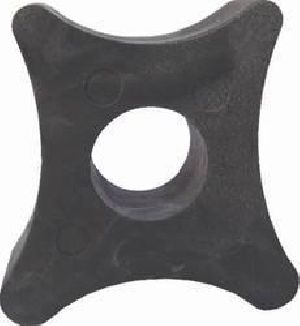
pvc cover blocks
Get Price Quote
We offer our valuable customers a wide range of PVC cover blocks. These are offered by our different sizes, designs and dimensions to meet the diverse needs of customers.Our products are widely appreciated for their smooth finish and durability. We are committed to providing a quality range of PVC cover blocks throughout the country. Made of high quality base materials, these PVC cover blocks guarantee their long service life. In addition to this, we offer PVC cover blocks according to different specifications according to the needs of our customers.The entire production process of these PVC roofing blocks is controlled by a team of qualified and specialized experts. Customers can get PVC cover blocks that we manufacture at very competitive rates.These products are recognized by customers for well-known features such as high tensile strength, robust design, durable and superior performance. Characteristics: 1) Used to provide seals when connecting two separate pipes. 2) Also, offers an anti-friction means between the contacts of the pipes 3) Unique appearance and precise dimension in the holes. Can be easily adjusted in all pipes. 4) Light weight to carry destination points. 5) Anti-exudative nature and easily reusable.
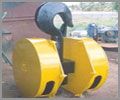
Snatch Block
Get Price Quote
We manufacture high quality snatch block made by expert technical associates as per customer specifications and requirements. These blocks are been manufactured with high quality mild steel as well as with high quality castings. These snatch blocks are made with precision and attention to each and every detail so that the best can easily be provided to the client.

pvc cover blocks
Get Price Quote
PVC cover blocks are used during concrete reinforcement to provide specified concrete cover to steel, our manufacture range starts from 15mm to 75mm and Rs. 6- is the price per no for a 75mm cover blocks others are less than this.

Eps Blocks
Get Price Quote
EPS Blocks are cut into different sizes to produce EPS sheets. However these blocks are cut into different shapes and sizes to produce hand fabricated packings for smaller requirements.

RK - Tiger black Granite Blocks
Get Price Quote
1 Tiger Black granite is available in cutter size slabs. 2 Tiger Black granite is best option for granite kitchen tops, granite countertops, granite flooring. 3 Tiger Black granite is used in commercial & residential, interior & exterior, flooring tiles, backslashes, counter tops, fireplaces 4 granite is an igneous rock that has a visible crystalline structure and is usually polished to a high gloss finish. 5 with proper maintenance it is very resistant to staining, etching, fading and burning. 6 little color, pattern, structure can vary significantly from granite to granite and from slab to slab of the same granite, because granite is a natural product.

Chain Pulley Block
4,200 Per Piece
1 Piece (MOQ)

PTFE Teflon Block
Get Price Quote
The Cornea is placed over the Teflon block and the donor button is then punched out.Aspheric curvature to match corneal curvature.Can be sterilized by dry heat, autoclave & E.T.O gas.

Grounding Block
Get Price Quote
Grounding block are moulded under the production table. it consist of two terminals for grouding of wrist strap.The wire is connected to ground. 4 ft wire. Grounding wire comes in lug for easy connection to building ground. Two grounding terminal. Two holes for easy moulding on production table.
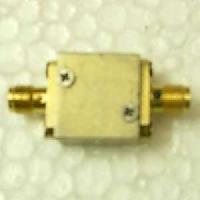
DC Blocks
Get Price Quote
Due to the inherent high breakdown potential, the DC Blocks one ideal for applications where a high voltage, DC to AC up to 20khz, must be rejected from the RF signal path. Leakage from modulating signals can occur via AC power lines, through ground loops, or along poorly grounded coaxial cables hence, High Voltage Dc Block restricts the same. These leakages can impair the accuracy of RF measurements and or signal purity. The Coaxial Dc Blocks are available in varied specifications meeting the requirements of the clients. Additionally we are listed amidst the dependable Broadband DC Blocks Exporters from India. Some of the options to choose from... DC blocks with RF passing from 10 kHz to 6 GHz 50 Ohm and 75 Ohm DC block (other impedance values also available upon request) Low insertion loss Inner and outer DC blocks available Breakdown voltages up to 200 Volts Any RF connector combination (BNC, SMA, N, TNC, 7/16, F)
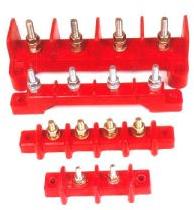
Terminal Blocks
Get Price Quote
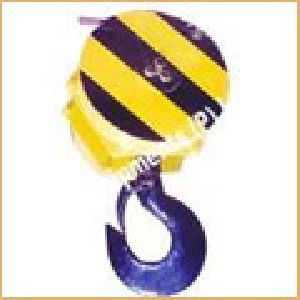
Snatch Block
Get Price Quote
We manufacture high quality snatch block made by expert technical associates as per customer specifications and requirements. These blocks are been manufactured with high quality mild steel as well as with high quality castings. These snatch blocks are made with precision and attention to each and every detail so that the best can easily be provided to the client.
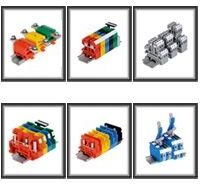
Terminal Blocks
Get Price Quote
Universally Mountable Terminals for one input and one output for pin type lug suitable for 0.5 to 95 sq mm conductor size. Feed Through Terminal Multi-Level Terminal Stud Type Terminal Fuse Terminal Disconnecting Terminal Power / Bus-Bar Terminal

Hollow Blocks
Get Price Quote
Hollow Blocks, Building Materials, Plywood, PLUMBING, Tiles, granite

Emboss Blocks
Get Price Quote
We are offering emboss blocks, made of tough polymer for long life and sharp emboss results.